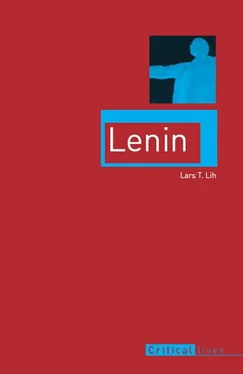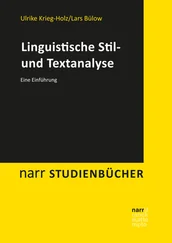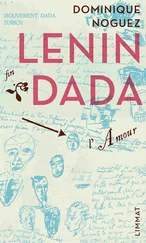Lars Lih - Lenin
Здесь есть возможность читать онлайн «Lars Lih - Lenin» весь текст электронной книги совершенно бесплатно (целиком полную версию без сокращений). В некоторых случаях можно слушать аудио, скачать через торрент в формате fb2 и присутствует краткое содержание. Город: London, Год выпуска: 2012, ISBN: 2012, Издательство: Reaktion Books, Жанр: Биографии и Мемуары, История, на английском языке. Описание произведения, (предисловие) а так же отзывы посетителей доступны на портале библиотеки ЛибКат.
- Название:Lenin
- Автор:
- Издательство:Reaktion Books
- Жанр:
- Год:2012
- Город:London
- ISBN:9781780230030
- Рейтинг книги:3 / 5. Голосов: 1
-
Избранное:Добавить в избранное
- Отзывы:
-
Ваша оценка:
- 60
- 1
- 2
- 3
- 4
- 5
Lenin: краткое содержание, описание и аннотация
Предлагаем к чтению аннотацию, описание, краткое содержание или предисловие (зависит от того, что написал сам автор книги «Lenin»). Если вы не нашли необходимую информацию о книге — напишите в комментариях, мы постараемся отыскать её.
Lenin — читать онлайн бесплатно полную книгу (весь текст) целиком
Ниже представлен текст книги, разбитый по страницам. Система сохранения места последней прочитанной страницы, позволяет с удобством читать онлайн бесплатно книгу «Lenin», без необходимости каждый раз заново искать на чём Вы остановились. Поставьте закладку, и сможете в любой момент перейти на страницу, на которой закончили чтение.
Интервал:
Закладка:
I had just come downstairs with Belenkii [Lenin’s security guard], when in the room to the right of the entrance Belenkii gestured with his arm toward the window: ‘over there, they’re carrying him’. When about twenty-five feet away he noticed me, to our horror, and started to press his hand to his chest and shouting ‘over there, there’ – asking for me. I had just come and had not yet seen M. I. and N. K. [Maria Ulyanova and Krupskaya]. They came running, and M. I., quite upset, said ‘since he’s noticed you, you have to go to him’.
I went, not exactly knowing how to behave or even, really, whom I would see. I decided to keep a happy and cheerful face at all times. I approached him. He pressed my hand firmly, I instinctively embraced him. But his face! It cost me a great effort to keep my mask and not to cry like a baby. In this face there was so much suffering, but not only the sufferings of the present moment. It was as if on his face were photographed and frozen all the sufferings he had undergone during this whole period. 59
The final stroke occurred on 21 January 1924. An hour after, Vladimir Ilich Ulyanov, known to the world as N. Lenin, breathed his last.
Epilogue
The highly emotional link between the flesh-and-blood individual Vladimir Ulyanov and his public persona N. Lenin consisted of a heroic scenario that gave content and meaning to his statistical investigations, his incessant polemics, his political strategies and all other aspects of his career. The basic contours of this heroic scenario were set out by Lenin in St Petersburg in 1893–4 and remained unchanged for the rest of his life.
Lenin’s scenario can be compressed into a single sentence or expanded into three hundred pages on capitalist development in Russia. The one-sentence version goes something like this: The Russian proletariat carries out its world historical mission by becoming the vozhd of the narod , leading a revolution that overthrows the tsar and institutes political freedom, thus preparing the ground for an eventual proletarian vlast that will bring about socialism. What propels this drama forward is inspired and inspiring class leadership. The party activists inspire the proletariat who inspire the Russian narod who inspire the whole world with their revolutionary feats.
The key words in the preceding summary are a mixture of learned terms imported from Europe (proletariat, revolution, socialism) and a deeply Russian vocabulary ( vozhd , narod , vlast ). I have transliterated rather than translated the key Russian words. The normal translations – vozhd = leader, narod = people, vlast = power – are not inaccurate, but they bleach the emotional colour out of Lenin’s rhetoric. By now the reader of this book will have seen these words in a variety of contexts and will have acquired a feel for their hard-to-translate connotations.
The combination of an assertively ‘scientific’ terminology and a romantic narrative is brought out with almost naive frankness by one of Lenin’s closest associates, Grigory Zinoviev, in a lecture on party history given in 1923:
The advocates of ‘Economism’ [around the turn of the century] did not acknowledge the hegemonic role of the proletariat. They would say: ‘So what, in your opinion, is the working class, a Messiah?’ To this we answered and answer now: Messiah and messianism are not our language and we do not like such words; but we accept the concept that is contained in them: yes, the working class is in a certain sense a Messiah and its role is a messianic one, for this is the class which will liberate the whole world.
The workers have nothing to lose but their chains; they do not have property, they sell their labour, and this is the only class which has an interest in reconstructing the world along new lines and is capable of leading the peasantry against the bourgeoisie. We avoid semi-mystical terms like Messiah and messianism and prefer the scientific one: the hegemonic proletariat . 1
‘Reconstructing the world’ is the proletariat’s mission in the general Marxist narrative, while ‘leading the peasantry’ is a mission much more specific to Bolshevism. Although the role of the proletariat as leader of the narod does have very deep roots in European Marxism, its strategic and emotional centrality is a distinctive feature of Lenin and Bolshevism.
Lenin’s heroic scenario originated as a response to the dead end faced by the Russian revolutionary tradition in the 1880s. An informed British observer, writing in 1905, describes the 1880s as the Russian socialists themselves remembered it:
We thus arrive at the beginning of the eighties. Consider the situation – the People’s Will Party [ Narodnaya volya ] lying on the ground broken and exhausted, reaction rampant, all that was but a short time ago hopeful, disheartened and embittered. Where shall we turn for light and guidance? To the people? It is mute. To the working-class? There is none. To the educated classes? They are all full of pessimism in the consciousness of their weakness. What, then, next? Is all hope to be given up? Is there no salvation for Russia? At this moment of darkness and despair a new and strange voice resounds through the space – a voice full of harshness and sarcasm, yet vibrating with hope. That is the voice of Russian Social-Democracy. 2
The dilemmas of the 1880s had a meaning for Lenin that was not only political but deeply personal, since they destroyed his older brother Alexander, who lost his life in a futile attempt to move the democratic revolution forward. Alexander’s fate led to Lenin’s deep emotional commitment to a heroic scenario that showed him ‘another way’ to achieve Alexander’s aims. Lenin never mentioned his brother in public. But at every stage of his career Lenin adamantly insisted that events were realizing the dream of the martyrs of the Russian revolutionary tradition.
Lenin became a passionate Social Democrat because he thought that this Western European movement showed the way forward for the Russian revolutionaries. Marxist analysis of Russia’s capitalist transformation proved to him that this irresistible force was uprooting old ways of life and turning the masses of the narod into potential fighters for democratic rights. The Social Democratic strategy of party-led class leadership, as embodied in the German SPD, gave him a method for realizing this potential. So vast was the power generated by this combination of objective change and energetic class leadership that it could even operate under tsarist repression – in fact, it could destroy tsarism and establish the political freedom enjoyed by Western Social Democracy. What for Alexander Ulyanov had been a duel between the government and a handful of daring revolutionaries now became an epic national struggle.
Lenin’s dedication to the konspiratsiia underground only makes sense in the context of his vision of a nationwide struggle. In contrast to the conspiratorial underground of the Russian populists the central task of the Social Democratic konspiratsiia underground was to get out the message. For Lenin the underground was a lever of Archimedes that greatly magnified the impact of a relatively feeble and persecuted organization. The underground could turn Russia around, because the seed it sowed fell on the fertile ground of Russia’s militant workers and awakening narod . The party’s role as inspiring class leader remained the same for Lenin even after it left the underground, even after it took power.
As shown by his rhetoric throughout his career, the emotions that Lenin invested in his scenario can only be described by such words as enthusiastic, exalted, romantic. The flip side of emotions such as these is his hatred of ‘philistinism’, that is, everyone and anyone who could not lift themselves up to the grand vistas of his scenario. As he wrote to Inessa Armand in 1916: ‘There it is, my fate. One fighting campaign after another – against political stupidities, philistinism, opportunism and so forth. It has been going on since 1893. And so has the hatred of the philistines on account of it. But still, I would not exchange this fate for “peace” with the philistines.’ 3
Читать дальшеИнтервал:
Закладка:
Похожие книги на «Lenin»
Представляем Вашему вниманию похожие книги на «Lenin» списком для выбора. Мы отобрали схожую по названию и смыслу литературу в надежде предоставить читателям больше вариантов отыскать новые, интересные, ещё непрочитанные произведения.
Обсуждение, отзывы о книге «Lenin» и просто собственные мнения читателей. Оставьте ваши комментарии, напишите, что Вы думаете о произведении, его смысле или главных героях. Укажите что конкретно понравилось, а что нет, и почему Вы так считаете.












